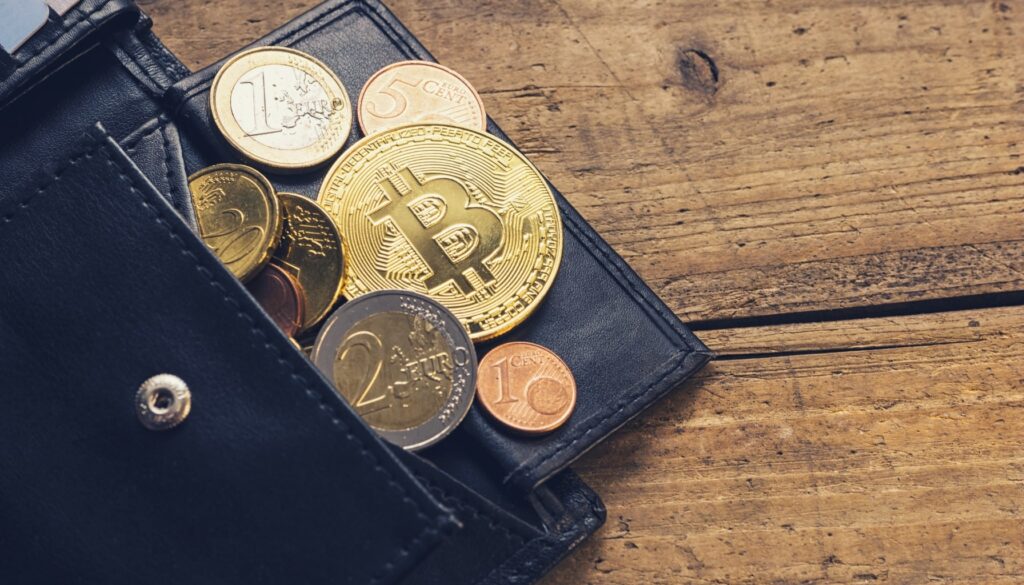In the world of cryptocurrencies, managing your assets securely is of utmost importance. Whether you're new to the crypto space or a seasoned trader, understanding how crypto wallets work, their types, and how to choose the right one is crucial. This guide explores everything you need to know about crypto wallets and how to trade cryptocurrencies safely online.
Table of Contents
1. What is a Crypto Account?
A cryptocurrency account is an account created on a cryptocurrency exchange or platform, allowing users to buy, sell, and manage digital assets. It serves as a gateway to the cryptocurrency market but does not provide direct control over private keys like a cryptocurrency wallet does.
2. What is a Crypto Wallet?
A cryptocurrency wallet is a digital tool that allows you to store, send, and receive cryptocurrencies securely. Unlike a traditional wallet, it doesn't hold physical currency. Instead, it stores the private keys required to access and manage your cryptocurrency holdings on the blockchain.
3. How Do Crypto Wallets Work?
Cryptocurrency wallets work by generating private and public keys. The private key is like your password—it provides access to your funds. The public key is shared with others to receive payments. These wallets connect to the blockchain network to track your balance and process transactions.
4. Types of Crypto Wallets
Cryptocurrency wallets can be categorized into several types based on their features and security levels:
- Hot Wallets (Connected to the Internet):
- Examples: Mobile wallets, desktop wallets, and web wallets.
- Use Case: Convenient for frequent transactions but less secure against hacking.
- Cold Wallets (Offline Storage):
- Examples: Hardware wallets and paper wallets.
- Use Case: Ideal for long-term storage as they are not connected to the internet, making them more secure.
- Custodial Wallets:
- Managed by a third party (e.g., an exchange).
- Use Case: Easy to use but less control over your funds.
- Non-Custodial Wallets:
- Full control of your private keys.
- Use Case: Recommended for experienced users prioritizing security.
5. How to Create a Crypto Wallet?
Creating a Cryptocurrency wallet is simple and varies depending on the wallet type you choose:
- Hot Wallet: Download a wallet app (e.g., Coinbase, Exodus), set up an account, and secure your private keys.
- Cold Wallet: Purchase a hardware wallet (e.g., Ledger, Trezor), follow setup instructions, and store it in a safe place.
6. How to Choose a Crypto Wallet?
Consider these factors when selecting a wallet:
- Security: Does it offer multi-signature support and encryption?
- Ease of Use: Is the interface user-friendly?
- Backup Options: Does it allow for recovery in case of loss?
- Compatibility: Supports the cryptocurrencies you plan to use.
- Reputation: Check user reviews and the wallet provider's track record.
7. Best Crypto Wallet Options in 2024
Here are some top choices for secure and reliable wallets:
- Ledger Nano X (Hardware): Best for security.
- Trezor Model T (Hardware): Supports multiple cryptocurrencies.
- Exodus (Hot Wallet): Great for beginners with an intuitive interface.
- Trust Wallet (Mobile): Backed by Binance, highly versatile.
- Coinbase Wallet (Web & Mobile): Ideal for integration with exchanges.
8. How to Safely Trade Cryptocurrencies Online?
- Choose a Secure Exchange: Opt for platforms with two-factor authentication and regulatory compliance.
- Use a Hardware Wallet: Store large amounts of cryptocurrency in a cold wallet.
- Beware of Scams: Avoid unsolicited investment offers and double-check wallet addresses.
- Stay Informed: Follow market trends and updates on cryptocurrency regulations.
By understanding the fundamentals of crypto wallets and how to safeguard your assets, you can navigate the cryptocurrency world confidently. Use this guide to choose the right wallet and trade securely in the ever-evolving digital economy.









